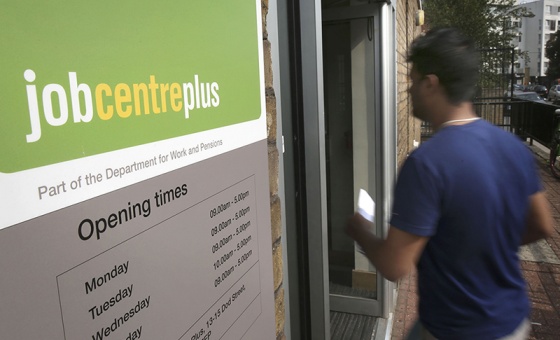This is the last article you can read this month
You can read more article this month
You can read more articles this month
Sorry your limit is up for this month
Reset on:
Please help support the Morning Star by subscribing here
Climate change is a challenging reality that we can hold down but not stop.
The Paris Agreement focuses all countries on the quest to protect our planet from global warming with all its threats. The funding support for developing countries recognises their challenges. Climate justice is a global issue.
Yet, in the US, Donald Trump gets votes from the Rust Belt as the world’s largest economy betrays its lead on climate change while satisfying some people’s demands for what is a bygone solution, jeopardising their and our children’s future. This is a cruel poisoned chalice dividing workers.
However, the second-largest economy, China, has national and regional leaders steering the economy towards more sustainable growth. The shift to climate-friendly industries is actioned and under way.
I know, as a member of the labour movement, that climate justice is equally important here in Scotland and the UK.
The effects of climate change are already here and inescapable for vulnerable people on a low income.
Flooding exposes this shockingly, with many people in homes on flood plains who can’t get insurance and can’t afford to move. They are truly stranded and need support from government.
Fuel poverty too highlights the inherent inequalities in climate change. The right to adequate housing is enshrined by the UN and here in Scotland this must mean a warm home. So it is shameful that a third of Scots live in fuel poverty. We need more robust regulation of private rented housing to ensure that homes meet energy performance certificate band C at least.
And there must be structural change in the ownership of energy. In Europe, district heating is underpinned by municipal action.
By tackling the issue of how we heat our homes, we would reduce fuel poverty and lower our climate-change emissions at the same time.
We know the heaviest greenhouse gas emitters are transport, energy, land use and agriculture. The new Climate Change Plan announced by the Scottish government this week sets the framework for change across all these sectors, but it is largely a disappointment.
It should have set Scotland well on the way to delivering a zero-carbon nation, but it has not. Pressure from Scottish Labour and stakeholders delivered some turnaround on transport ambition in the Programme for Government, but agriculture now seems to be forgotten, with only a 9 per cent decrease in emissions asked of it over the next 14 years.
How we use our land and who owns it is fundamental to reducing our emissions. Increasingly communities are developing sustainable futures from Wanlockhead to Eigg. It is essential that future agricultural support that will replace the Common Agricultural Policy gives public money for the public good.
Our public transport system also needs to be reconfigured. A nationalised railway could set climate criteria, while ensuring that profits are for people and that railway workers are properly respected. Bus reregulation can force cleaner fleets, as with Lothian buses. Integration with safe cycling and walking will bring multiple benefits.
The SNP ambition to tackle climate change has dissolved. Its Climate Change Plan fails to meet all of the recommendations of Scottish Parliament committees, it fails to explain how it will interact with the Climate Change Bill and increasing future targets and it fails to mention the vital role of trade unions.
In the leadership contest I strongly supported Richard Leonard, whom I have known and respected for two decades. As a union organiser he understands how people struggle for a good quality of life in parallel with wages and working conditions.
Alongside redistribution of wealth, through a more robust tax regime, is the issue of work and what people are paid for it. The living wage should be just a start.
Many people working in traditional industries say that they are uncomfortable with the slow pace of change. There is the opportunity for a manufacturing renaissance as we develop the supply chain for renewables and shift to remanufacturing as part of the circular economy, reducing waste.
There will be the need for more transferable and initial skills training, whether for the North Sea as we shift towards marine renewables or for plumbers to learn how to install solar roofs.
However, everyone has to put bread on the table. In my view, the way to help effect change in heavy industries is through trade union involvement, ensuring future jobs are unionised and well paid. The Just Transition Trade Union Partnership is addressing these issues squarely, working with environment groups. The forthcoming Climate Change Bill is the opportunity to set up a Just Transition Commission, independent of government, answerable to the Scottish Parliament and properly funded.
Business should be making a significant contribution. Conversion investment by ethical investors must be a meeting point with socialist strategies. In the future, stranded assets would do nobody any favours.
We can all influence the shift to the low-carbon future in our homes, schools, communities and workplaces, while working strategically with willing governments and authorities at all levels.
The time to act is now.
Claudia Beamish is MSP for South of Scotland and shadow minister for environment and climate change.












